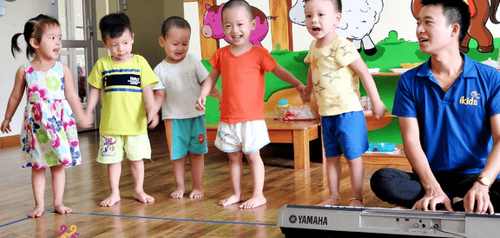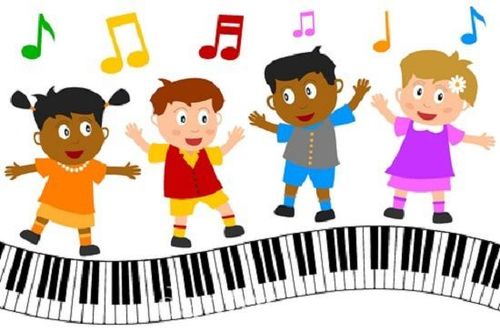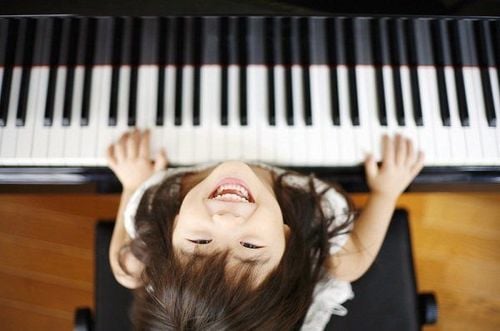This is an automatically translated article.
If you want your baby to love music, the best way is to expose them to music as early as possible. You can let your child listen to music in daily activities, familiarize them with objects that make sounds,... But when it is possible for children to learn music methodically, not everyone knows1. When can children learn music?
We've all heard stories of famous musical prodigies, like Wolfgang Amadeus Mozart writing his first symphony at age 8 to Stevie Wonder signing with Motown at age 11. These prodigies immersed themselves in music lessons from a young age, only to later achieve great success. Stories about musical prodigies make people ask, what is the right age to start learning music?Whether children take a high-quality music class or start practical lessons, children will benefit greatly from exposure to music. Children can begin formal musical training as early as 3 years old, when their brains are ready to take in music lessons.
In fact, studies at the University of California show that taking music lessons at the age of 3 can strengthen a child's brain. However, many piano teachers prefer for children 5 years and older, when children's hands are larger and they are more willing to sit still and concentrate.
If you feel your child is not ready for formal music lessons, you may want to involve your child in a music program that focuses on nurturing a love of music, rhythm, and physical ability. present yourself. By exploring how different musical instruments sound and perceive music, children can learn to appreciate music much better than they could with vocal practice.
When your baby is ready for more formal training, the piano is a good instrument to start with, as finger movements are less complicated than those of a guitar or violin. However, at this age, the most important thing is that children love to have fun. Make sure that music teachers work well with young children and keep the class fun and paced.
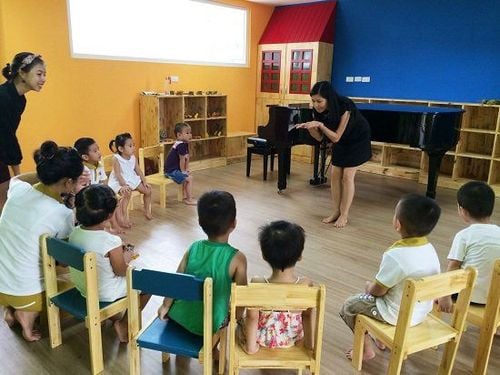
Trẻ em có thể bắt đầu được đào tạo âm nhạc chính thức ngay từ khi 3 tuổi
2. Reasons why parents want their children to learn music early
Parents often hear complaints from other parents that they have to postpone music lessons until their children are older, such as “My parents made me play an instrument when I was young. ... I hated it then and still hate it now. To avoid this negative attitude, parents choose to delay music lessons until the child is older and can choose his or her own instrumentThese are not wrong, but in reality the problem is you need to determine how music lessons should be. It is important to consider the underlying reasons that parents might want their children to take music classes.
More and more studies indicate the "window of opportunity" is that from birth to nine years old, this is the best time to develop musical sensibility in children. During this time, the structures and working mechanisms of the part of the brain involved in processing and understanding music are in a prime development stage, so exposing children to music in this age group is very important. is extremely important. What is the goal of music lessons for young children? Very young children may not be able to master musical instruments, but children can still be exposed to musical instruments to gain experience and learn to develop meaningful relationships with music at an early age. If this is a goal you define for your child, then music lessons should begin soon after birth and preferably during the child's first year.
These “lessons” are not necessarily practical. Parents can guide their children by immersing them in a musical environment. You should help your child focus on music with simple motor activities such as musical games, rocking or dancing while holding the baby, singing or playing an instrument.
When the child is three years old, more formal “lessons” can begin. Again, the goal is not to learn to play an instrument but to further develop skills such as identifying rhythms in music, identifying melodies, or identifying instruments. To see if a class is right for your child, make sure that your goals and expectations match those of the teacher.
By the time a child is 5 years old, most children have built a foundation to prepare for formal music lessons. Right now, the goal of the lessons is not to become a great performer on an instrument, but to gain a deeper understanding of the music. Piano and violin are the two most popular instruments played at this age, but there are other kids who have had success with guitar or ukulele.
By the age of 10, children will have many skills related to the instrument of their choice. Your child will also be physically fit to try another, larger instrument, such as a drum or a large string instrument that requires a higher level of strength and stamina. Around this time, the goal of the lessons shifted from gaining experience in music to improving performance.
Music-related activities should begin soon after birth, followed by more systematic classes around age three, and lessons with the goal of learning an instrument should begin between the ages of six and nine. However, keep in mind that these are general guidelines for all children, and exceptions are bound to happen.
Experiencing music at an early age is extremely important in a child's development. Like riding a bike or learning a language, these skills can be learned later in life, but certainly won't be as effective as starting them at an early age.
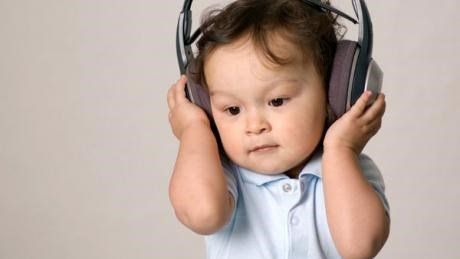
Trải nghiệm âm nhạc khi còn nhỏ là vô cùng quan trọng trong quá trình phát triển của trẻ
3. Is music good for children?
The benefits of learning music are many. Music can help children:Express themselves and their feelings. Develop creativity. Increase communication skills. Learn to approach problems in different ways. Learn to work with others towards a common goal and give your child something to enjoy! Learning music is like learning a foreign language, the earlier children start learning, the more advantages they have and the more time they have to learn and perfect techniques. Starting music lessons at a young age will help them control, pronounce, and hear pitches more easily than children who start at an older age.
While there are many benefits to starting music lessons early, it's never too late to start learning music! While a child may never become a famous artist or singer, it is good to pursue music as a beginner, or to return after a long hiatus.
Similar to children, learning music as an adult allows you the opportunity to create, solve problems, express yourself, enjoy, learn new skills and participate in a community of music lovers .
Ultimately, every child is different and you know your child's interests and abilities best. Expose your child to a variety of music and instruments, see what catches his or her attention, and consider how you'd like to expose your child to music.
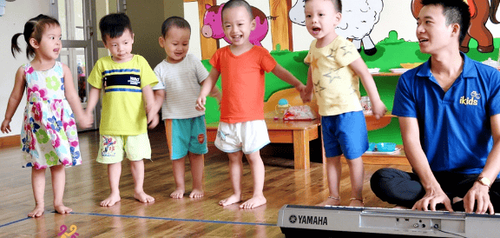
Học nhạc giống như học ngoại ngữ, trẻ bắt đầu học càng sớm thì trẻ càng có nhiều lợi thế
Please dial HOTLINE for more information or register for an appointment HERE. Download MyVinmec app to make appointments faster and to manage your bookings easily.
References: babycenter.com, pbs.org, libertyparkmusic.com



